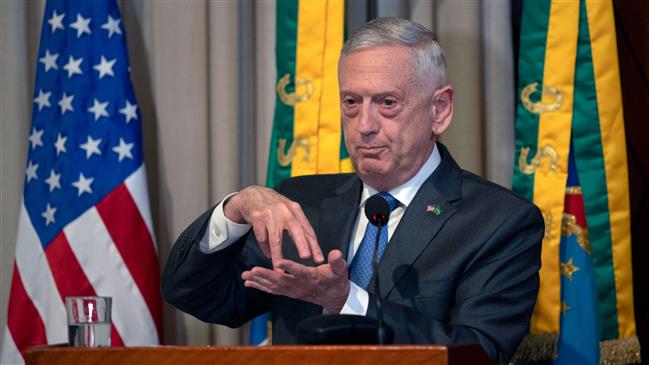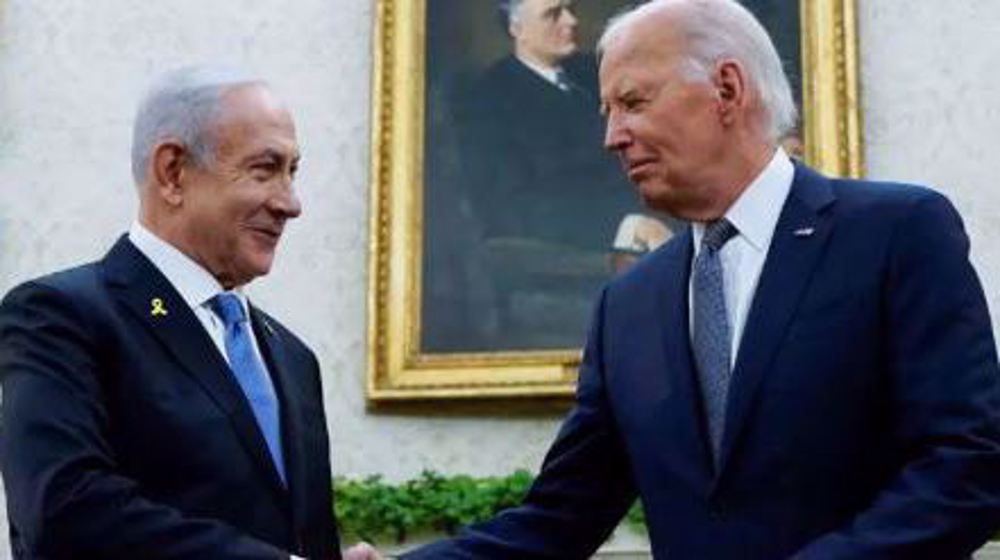Mattis: US military to step up South America role amid ‘power competition’ with China
The US military plans to take on a more active role in South America amid a growing “power competition,” Defense Secretary Jim Mattis said, fresh off a trip where he warned allies of China’s “predatory economics.”
Speaking at the 140th National Guard Association of the United States conference in New Orleans, Louisiana, Mattis said over the weekend that the US National Guard was ready to link the US military to South American allies.
“This department is laser focused on strengthening alliances and building new partnerships,” the Pentagon chief said.
“This is not a one-time mission, and the Guard is uniquely suited to sustain allied efforts over many years thanks to the amount of corporate continuity you maintain in your ranks," he added.
Earlier this month, Mattis toured the region, making stops in Brazil, Chile, Argentina and Colombia.
In Brazil, the Pentagon chief highlighted Washington’s interest in partnering with Brasilia in space research, an area that has seen increasing interest from Chinese firms in South America.
"We choose Brazil not because it lies along the equator in a happy accident of geography, but because we want to work with Brazilians — our hemispheric neighbor whose values we share politically, as well as your impressive technological orientation," Mattis said in Brazil. "Others cannot credibly say the same."
Generally perceived as a reliable economic partner in the region, China has even managed to fund a space center in Argentina’s Patagonia region.
Speaking to Brazilian military students, Mattis also pointed to China’s great strides in developing anti-satellite weaponry and concluded that Brazil and the US needed to join forces to defend their space assets.
“We understand the message China was sending, that they could take out a satellite in space,” he said, referring to China’s targeting of one of its own satellites in 2007.
‘Nations without allies die’
The US National Guard has established close military ties with US allies across the world through the State Partnership Program, or SPP.
Administered by the National Guard Bureau, the 25-year-old program is designed around the Defense Department and State Department’s policy goals. The program involves 75 countries, 24 of them located in South America.
The SPP is slated to welcome two new countries later this year: Brazil with the New York National Guard, and Qatar with the West Virginia National Guard.
According to Mattis, Chile is interested in receiving more support from the Texas National Guard in protecting and expanding its cyber domain.
Washington has struggled to keep some SPP partnerships alive due to increasing hostilities towards some partners under various US administrations.
A 2016 Pentagon report to Congress warned that programs once active in Bolivia, Ecuador and Venezuela “are mostly dormant, due to strained relationships with the US government.”
Mattis hailed cooperation between American and Argentinian military forces before ending his remarks with what some experts perceived as a threat.
“I’ve fought many times on many battlefields. ... I’ve never fought in an all-American formation," he added. “History is very clear: nations with allies thrive, while those without allies die."
Iran, Saudi Arabia determined to establish endurable peace: Deputy FM
Humans of Gaza: 33-year-old footballer Ramzi Al-Safadi killed with brother
‘We’ll rebuild homes, lives’: Lebanese people displaced by war vow to return home
Ex-US Army officer and Press TV analyst Scott Bennett dies at 53
IRGC: 76 terrorists killed, captured during anti-terror drills in southeast Iran
VIDEO | ICC arrest warrant for Netanyahu
Italian court rules al-Quds cannot be Israel’s ‘capital’
Starbucks closes 50 stores in Malaysia amid anti-Israel boycott drive











 This makes it easy to access the Press TV website
This makes it easy to access the Press TV website